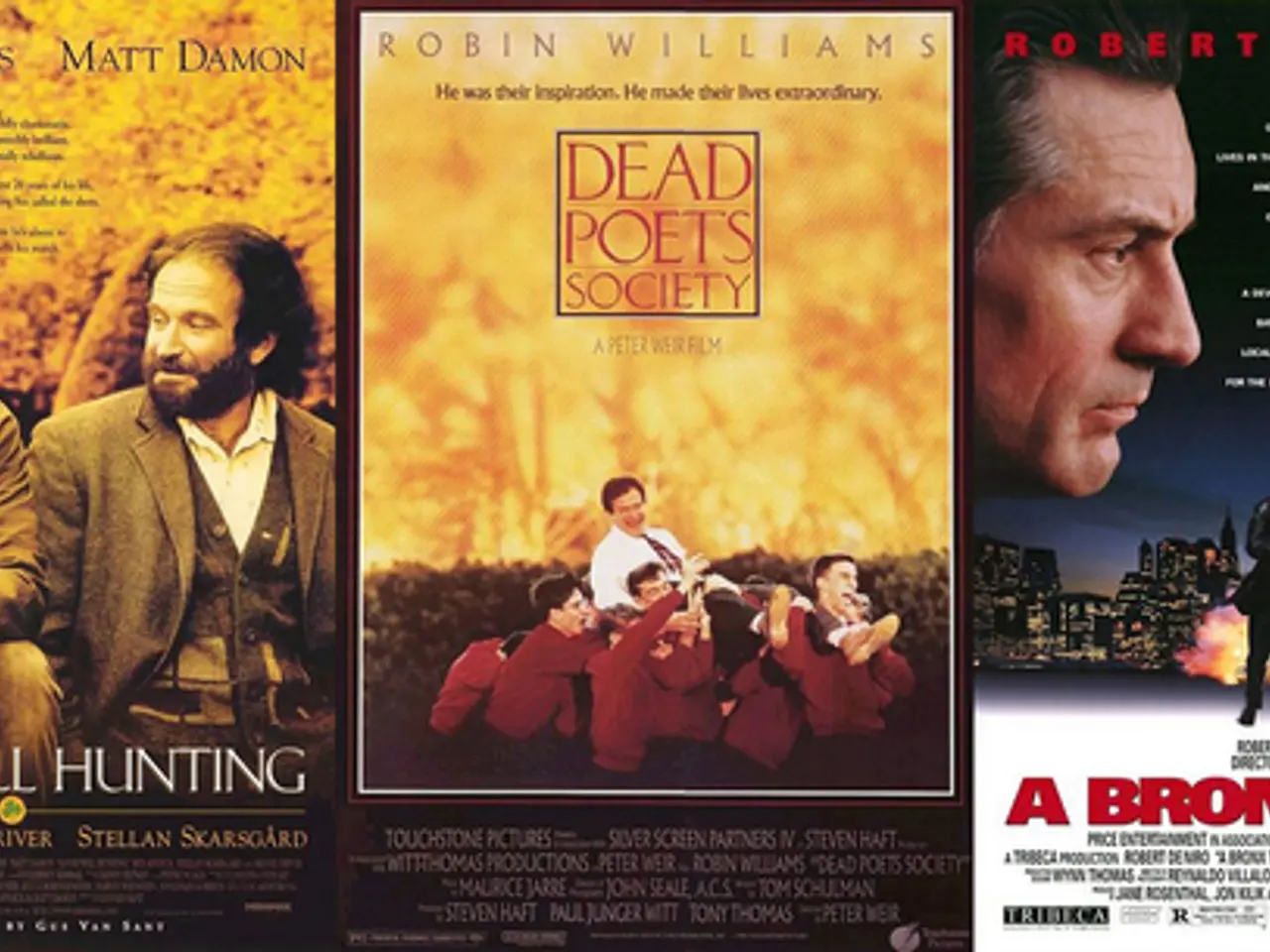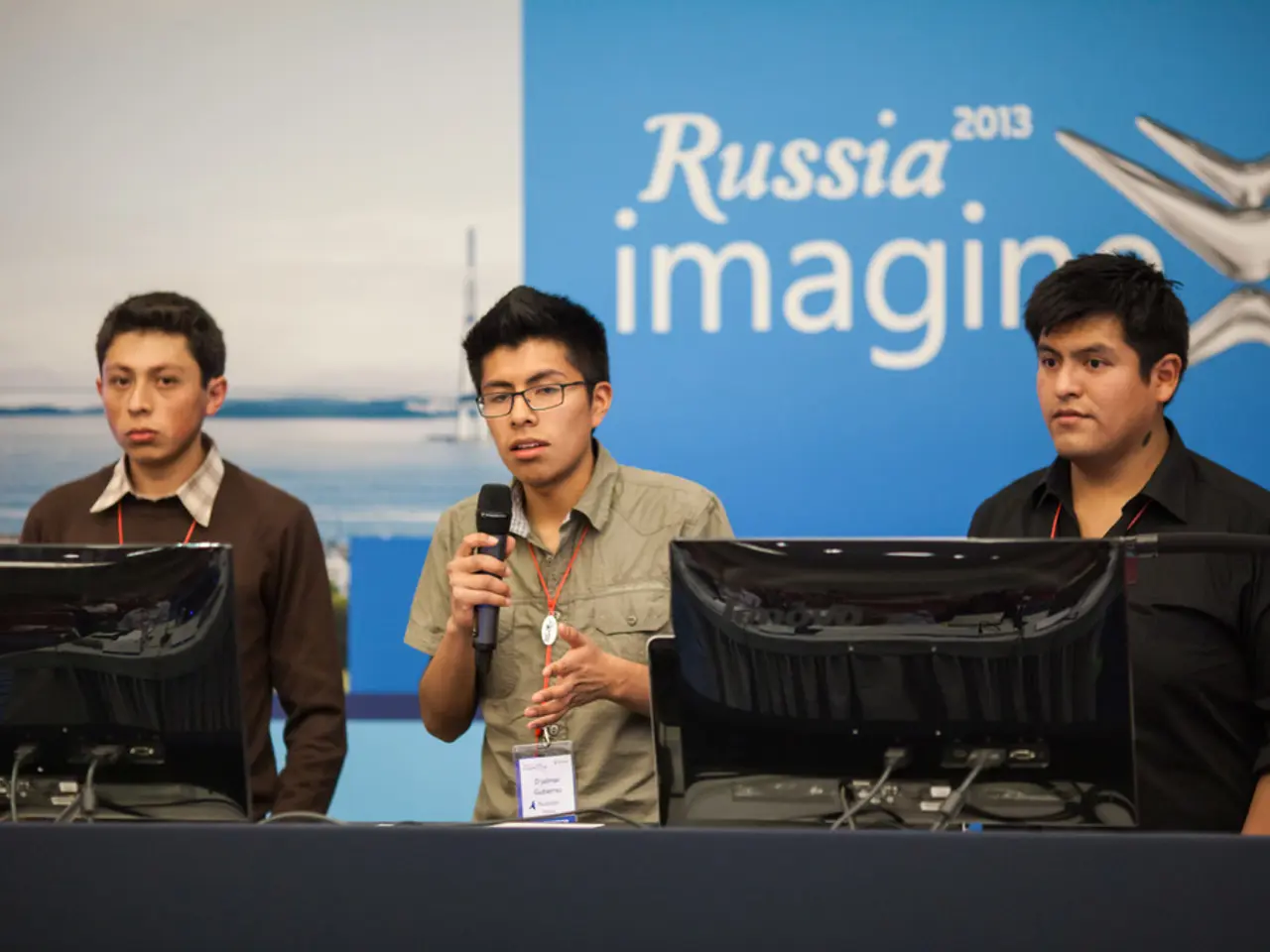Surveillance state realized as Coldplay's kiss-cam incident sparks controversy
In the digital age, the blurred lines between privacy and public scrutiny have never been more evident than in the recent "ColdplayGate" incident. This case, involving tech executive Andy Byron and the chief people officer at Astronomer, Kristen Cabot, highlights how technology and personal data are increasingly used for public shaming and self-surveillance.
The incident began at a Coldplay concert, where Byron was allegedly caught in an affair. The moment was captured by attendees and swiftly published on social media platforms such as TikTok and Instagram, leading to over 46 million views in just 24 hours. This rapid spread of personal information demonstrates how social media can amplify personal details and subject individuals to widespread public scrutiny.
The quick identification of the individuals involved, thanks to facial recognition and crowdsourced investigations on social media, further underscores this trend. The public's swift and harsh judgment, particularly towards Kristin Cabot, reflects a broader issue where technology can amplify societal biases and pressures.
The reaction included the sharing of personal details, such as social media profiles of the spouses involved, further illustrating how technology can facilitate the exposure of private lives. Incidents like "ColdplayGate" contribute to a culture where surveillance and public scrutiny are normalized, often at the expense of individual privacy.
The normalization of surveillance is not limited to high-profile individuals. Tracking technology is prevalent in modern offices, with companies using various forms of technology to track worker behavior. This raises concerns about society's willingness to use technology for public shaming of individuals who violate social norms.
The "ColdplayGate" incident led to serious consequences, including a formal investigation and Byron's eventual resignation from his position at Astronomer. This demonstrates how technology can have significant impacts on personal and professional lives when used for public shaming.
Historian Malcolm Gaskill, in a 2016 op-ed, described today's technology as just a faster, more public outlet for the worst behavior. The widespread sharing and public shaming of videos of badly behaved or intoxicated individuals can be seen as an example of the human tendency to persecute someone for a perceived wrong, without knowing the full story.
The use of technology for public shaming is not a new phenomenon. In 2013, self-appointed Reddit sleuths incorrectly identified a person as one of the Boston Marathon bombers, who had actually committed suicide before the bombing.
The story has been updated to reflect Byron's resignation from Astronomer. The company confirmed Byron and Cabot's involvement in a statement to the AP. No other employee of Astronomer was identified in the viral video.
The "urge to persecute" can be seen in numerous examples of internet witch hunts over recent years. The use of technology for public shaming raises questions about the balance between privacy and accountability, and the potential consequences for individuals and companies.
Moreover, the reliability of facial recognition technology used by law enforcement agencies has been criticized, with concerns about withholding its use from the courts. The vision of a future with a centralized database monitored by AI, as proposed by Oracle cofounder Larry Ellison, represents a level of mass surveillance and policing that is concerning to many.
In conclusion, the "ColdplayGate" incident serves as a stark reminder of the power of technology and the potential risks associated with its misuse. As we continue to navigate the digital age, it is crucial to address these concerns and strive for a balance between privacy, accountability, and ethical use of technology.
[1] https://www.cnbc.com/2021/04/23/coldplaygate-the-ceo-at-the-center-of-the-viral-concert-video-has-resigned.html [2] https://www.wsj.com/articles/coldplaygate-a-ceo-s-resignation-after-viral-video-of-an-affair-at-a-concert-11619734200 [3] https://www.businessinsider.com/coldplay-concert-video-ceo-andy-byron-resigns-after-viral-video-2021-4 [4] https://www.forbes.com/sites/johnkoetsier/2021/04/23/coldplaygate-ceo-andy-byron-resigns-after-viral-video-shows-him-in-affair-at-concert/?sh=6028f4e214b8
- The incident at the Coldplay concert, where personal details were quickly disseminated through social media, underscores how technology can make private lives public, even leading to public shaming.
- The swift judgment passed on Kristen Cabot following the ColdplayGate incident illustrates how technology can magnify societal biases and pressures, often at the expense of privacy.
- The use of facial recognition technology and crowdsourced investigations on social media can result in the rapid identification of individuals, contributing to a culture where surveillance and public scrutiny are increasingly normalized.
- The 'ColdplayGate' incident, and its significant impacts on personal and professional lives, underscores the need for a balance between privacy, accountability, and ethical use of technology in the digital age.




